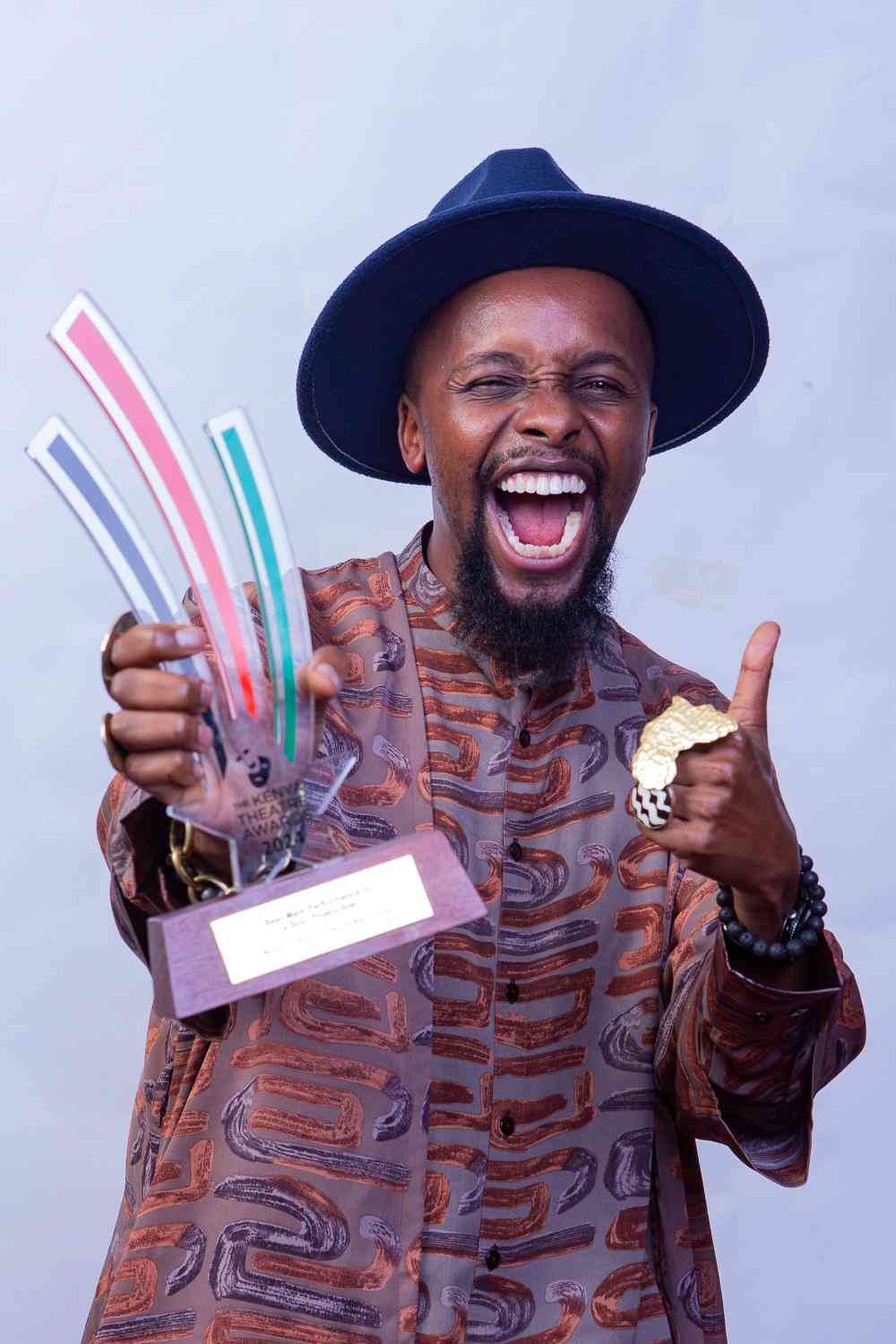
Every Brilliant Thing, the play that scooped Best Storytelling Production and Best Male Solo Performance at last year’s Kenya Theatre Awards, is back by public demand.
Led by Kenya’s own decorated thespian and filmmaker Mugambi Nthiga (Nairobi Half Life, Lusala), the monologue received rave reviews for cleverly delving into the issues of depression and mental health.
What do you love most about ‘Every Brilliant Thing’?
When it landed on my table the first time, the director, Julisa Rowe, had just been asked to propose a performance piece to close the Cradle Arts Festival — an art and performance-infused event working to raise awareness on mental health. Julisa researched, found this play and reached out to me. I read the script and by the end, ilkuwa machozi tu ( I was in tears). The play brings out the topic of mental health in a clever, funny, and touching way. People come and see it, and see themselves in it.
Coincidentally, it also hits very close to home for me. The protagonist and I were roughly the same age when he starts his list of brilliant things to uplift his suicidal mother. He is seven years old and began writing them in 1987. I was the same age in 1987, so a lot of the brilliant things he mentions, I can relate to.
I have also had my mental health struggles, and between 2010-2011, I lived with crippling depression. Back then, the discussion was not being had at all, sharing was seen as an admission of weakness. Going through that period inspired me to tell stories about mental health.

Your performance won you a Best Male Solo Performance last year at the Kenya Theatre Awards, how was the whole experience?
A lot of people seemed to expect it, but I honestly didn’t. I didn’t even want to think about whether my name would be called out or not, because award shows can be very subjective. I was trembling when it was read out. It validated it for me. The fact that it received that recognition from a judging panel of peers was deeply satisfying, fulfilling, and affirming.
You dedicated this coming performance to the late celebrated actor Charles Ouda, what prompted the gesture?
I got to work with Charles a lot in the past. He was a true professional, our first play together was Luanda Man of Stone in 2003 and my last project with him was the Manic Monologues, which saw him win the Best Male Solo Performance Award.
It was about his time in New York where he attended the Lee Strasberg Theatre and Film Institute. He kept being reminded how lucky he was, yet he was going through his struggles.